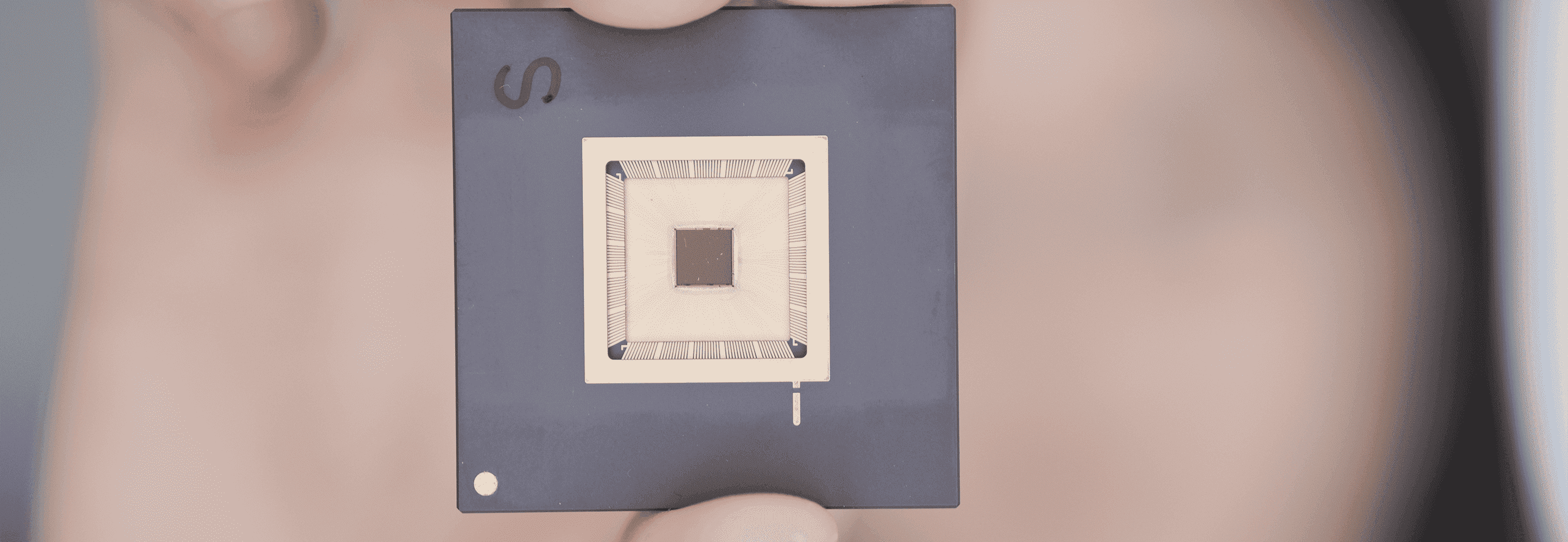
CiTIUS repeats success with the award of a new University-Company Chair in Microelectronic Design, driven in collaboration with the technology company Televés
The resolution of the 'Chip Chairs' grant program, made public through the Secretariat of State for Telecommunications and Digital Infrastructures, acknowledges the new project from the USC centre, a multidisciplinary proposal involving scientific and technological leaders in Microelectronics and Semiconductors.
Another endorsement from the Spanish Government in less than two weeks for a university-business Chair project promoted by CiTIUS: the Ministry for Digital Transformation and Public Function, through the Secretariat of State for Telecommunications and Digital Infrastructures, has just announced the resolution of grants from the 'Chip Chairs' program, including the new initiative led by the USC centre.
The new USC-Televés Chair in microelectronic design, a project coordinated by the University of Santiago de Compostela through CiTIUS, collaborates with the technology company Televés and will have a total budget close to two million euros (€1,900,000). Of this, the State will contribute around €1.6 million, while the remaining €300,000 will come from the company's direct investment. The initiative will be developed within the framework of the Strategic Project for Microelectronics and Semiconductors (PERTE Chip), aiming to establish itself as a fundamental pillar for progress in the field of Microelectronics and Semiconductors.
Leading the coordination will be Paula López, a researcher linked and deputy director of CiTIUS: "We want to emphasize the launch of this Chair as an essential strategic measure to promote research in key areas," she states, "as well as to counter the growing concern for Europe's digital sovereignty in the microelectronics and semiconductor sector." The scientific head also emphasizes "the essential support of Televés," whose collaboration she considers "vital, both in terms of funding and in addressing the technological challenges posed by the project," she explains.
It will be the Galician company that will exercise the co-direction of the Chair, through Dr. Ana Peláez, director of Maxwell Applied Technologies, a specialized subsidiary in microelectronics within Televés Corporation, the technology group composed of more than 20 companies in which Televés is the head, dedicated to the design, development, and manufacture of products and solutions for telecommunications infrastructures in homes, buildings, and cities worldwide. The Chair's co-director highlighted the collaboration with the academic environment, stating that this relationship "is fundamental to provide our products with essential technological innovation in a context of global competition." In its collaboration with CiTIUS, Televés will focus on promoting research for the development of advanced communication systems, including applications in 5G technology.
The USC-Televés Chip Chair brings together renowned researchers in the field within the University of Santiago and also collaborates with the Supercomputing Centre of Galicia (CESGA), which joins the proposal to develop research in quantum computing. Among the USC research team are Natalia Seoane and Victor Brea (CiTIUS), Francisco Rivadulla (CiQUS), Jesús Liñares Beiras (iMATUS), and Héctor Álvarez Pol (IGFAE), while CESGA will be represented by the researcher Andrés Gómez Tato. Finally, the presence of two researchers from world-leading centres in their respective fields is noteworthy: María Loreto Mateu from the Department of Circuits and Integrated Systems at the Fraunhofer Institute (Germany); and Jana Berit Nieder from the Institute of Nanotechnology of Braga – INL (Portugal), reflecting the international leadership ambition of this Chair in key areas for the project.
This international projection not only consolidates the relevance of ongoing joint research but also opens the door to future partnerships with world-renowned researchers, either through participation in joint projects or through the organization of international events or conferences. All of this will enrich the research ecosystem, expanding the scope and depth of scientific contributions in the field of microelectronics and semiconductors. With an approximate duration of three years (expected end date in mid-2027), the proposal aims to articulate a scientific and technological collaboration ecosystem without forgetting the training framework, as evidenced by the plan to create a new interuniversity Master's in Micro and Nanoelectronic Design.
The Chair will pave the way for tackling key challenges in the microelectronics sector, highlighting the research lines in Edge Computing, Memory Computing, Quantum Computing, and the advancement of cutting-edge chips for AESA (Active Electronically Scanned Array) systems. Edge Computing optimizes data processing near the source, reducing latency and increasing efficiency in critical applications. Memory Computing revolutionizes the traditional processing paradigm by accelerating data access and improving application performance. Quantum Computing, with its potential to solve complex problems at speeds unimaginable for classical computers, promises significant advances in cryptography, material simulation, and optimization. Finally, next-generation chips for AESA systems are transforming the defence and aviation industry. These fields not only represent highly important scientific frontiers but are also essential for revitalizing the leading role of the national and European industry in an increasingly globally influenced scenario by powers such as China and the United States.